Meet Our New Faculty
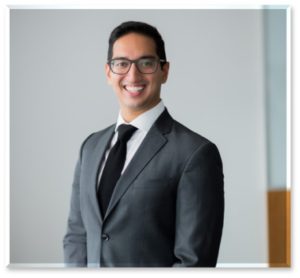 Neel D. Pasricha, MDDr. Pasricha joins the Department of Ophthalmology as a cornea specialist.
Neel D. Pasricha, MDDr. Pasricha joins the Department of Ophthalmology as a cornea specialist.
Cornea, External Disease, and Refractive Surgery Fellowship: Bascom Palmer Eye InstituteResidency: UCSFMD: Duke University
What excites you about your appointment?I appreciate the academic pillars of teaching, research, and patient care. It’s a privilege to collaborate with such impressive and inquisitive colleagues and trainees. Dr. Stephen McLeod was one of my residency mentors – and a big reason I came back as faculty. I’m honored I got to work alongside him, albeit briefly!
What is your clinical practice like?As a cornea specialist, I specialize in treating diseases of the cornea and cataracts. I love operating, and perform cataract surgery, corneal transplantation, ocular surface reconstruction, anterior segment reconstruction, corneal collagen cross-linking, and therapeutic refractive surgery. To provide greater continuity of care for children with corneal issues, I am developing a pediatric cornea niche.
How do you offer hope to your dry eye patients?The goal of my research is to discover and develop new drugs for increasing tear production. To that end, I use ocular surface electrophysiology, which measures electrical changes in the tear film that covers the eye’s surface to study the movement of ions, such as sodium, chloride, and potassium. This promising collaboration with mentors in ophthalmology and cystic fibrosis may advance more effective and personalized therapies.
You were voted Fellow of the Year at Bascom Palmer. Why?This was a big honor! I tried to put myself in the shoes of these incredibly busy doctors. Providing them with bits of expertise on the fly, strategies and information they could put to work immediately, helped them improve care immediately for eye patients from the United States and South America.
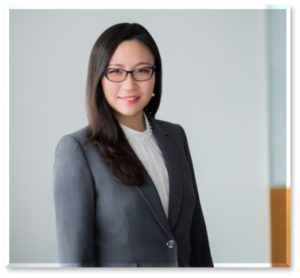 Jing (Meghan) Shan, MD, PhDDr. Shan joins the Department of Ophthalmology as a glaucoma physician-engineer.
Jing (Meghan) Shan, MD, PhDDr. Shan joins the Department of Ophthalmology as a glaucoma physician-engineer.
Glaucoma Fellowship: UCSFResidency: University of Southern CaliforniaMD: Harvard UniversityPhD in Medical Engineering, Medical Physics: Massachusetts Institute of Technology
How can artificial intelligence (AI) improve glaucoma care?By developing AI tools to quickly and accurately analyze high volumes of test results, I aim to contribute to wide-spread glaucoma screening and referrals for early treatment. Testing is now limited by the need for trained analysts. Portable test devices will also support greater access.
What are your priorities at UCSF?I seek to help patients live the best lives they can. I’m passionate about glaucoma because, although it’s devastating, we can prevent sight loss through early treatment. Through research, I want to live up to my training as a medical engineer – advancing innovations that benefit patient outcomes. I’ve also long been interested in teaching, and mentorship is a key aspect of clinical training. The quality of trainees here is one thing that drew me back to UCSF.
How does it feel to join this highly regarded faculty?Speaking of mentorship, it’s quite an honor to work alongside glaucoma mentors who inspired me during my fellowship and made me who I am today: my fellowship directors Drs. Ying Han and Yvonne Ou, along with the other excellent glaucoma providers here at UCSF.
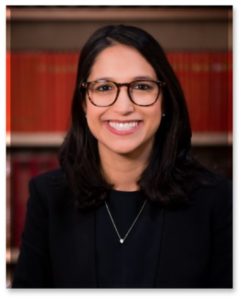 Jessica Shantha, MD, MSDr. Shantha joins the Proctor Foundation as a uveitis specialist.
Jessica Shantha, MD, MSDr. Shantha joins the Proctor Foundation as a uveitis specialist.
Prior Employment: Emory University, Morehouse UniversityUveitis and Medical Retina Fellowships: UCSF Proctor Foundation, Retina Consultants of HawaiiResidency and MS: Emory UniversityMD: Morehouse University
How did you become interested in global ophthalmology?Initially it was my upbringing and hearing stories of my father growing up in India. As I progressed through my educational training, I sought out international experiences at each level, which took me to Panama, Haiti, India, and most recently Africa. At Emory, I was involved with a recovered Ebola survivor from Sierra Leone. Advancing our understanding of his eye disease and translating the science and care to impact thousands of survivors piqued my interest in scientific discovery and research.
What are the primary aims of your research?I’m interested in determining unknown risk factors for ocular complications of emerging infectious diseases. I have also been involved in evaluating the retina as a novel biomarker for monitoring systemic vascular disease in persons living with HIV. More recently I have been involved with studies evaluating treatment of trachoma and using metagenomic deep sequencing in the diagnosis of infectious uveitis.
What do you appreciate about your clinical focus?The conditions I treat are challenging and can be chronic. The positives for me are at least two-fold. It’s fascinating to listen to patients and problem solve, often in collaboration with clinicians in other specialties. I also enjoy the long-term relationships that I build with my patients.
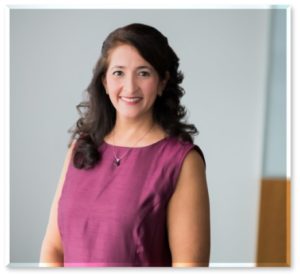 Manvi Prakash Maker, MD, MSDr. Maker joins the Department of Ophthalmology as a comprehensive ophthalmologist.
Manvi Prakash Maker, MD, MSDr. Maker joins the Department of Ophthalmology as a comprehensive ophthalmologist.
Prior Employment: University of Chicago, NorthShore University Health SystemRetinal Disease, Diabetic Retinopathy, and Medical Education Fellowships: University of Chicago, Harvard UniversityResidency: Medical College of WisconsinMD, MS: Wayne State University
Why did you choose UCSF?This is an amazing opportunity to learn and grow, working alongside top-caliber vision scientists.
How do you aim to address diabetic eye conditions?Diabetes is a worldwide epidemic and a major threat to sight. Our laser treatments slow sight loss, but patients need better solutions. I hope to be part of finding those.
How did your training shape your career path?In Detroit, I worked with many underserved patients with advanced eye conditions. It was gratifying to save sight in these dramatic cases, and it piqued my interest in global care, too. International rotations will allow me to bring sight-saving surgeries to people with the fewest resources. I’m also happy to be involved at the UCSF-affiliated county hospital.
Why your strong interest in teaching?It’s a family tradition – my mother is an educator. I want to develop my leadership skills and find new ways to optimize training programs.
How did mentors and patients help you learn?Mentorship is key to clinical training – the only way to really learn complex procedures. And my patients were so supportive as I became a better and better ophthalmologist. I remain grateful for their generosity.
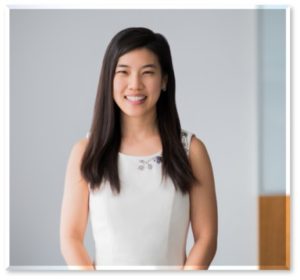 Madeline Yung, MDDr. Yung joins the Department of Ophthalmology as a comprehensive ophthalmologist.
Madeline Yung, MDDr. Yung joins the Department of Ophthalmology as a comprehensive ophthalmologist.
Cornea Fellowship: UC DavisResidency: UCLAMD: UCLA
How did you become interested in medicine?My mother was a nurse and deeply impressed me when she provided at-home care for a pregnant neighbor when I was young. Later, mentors showed me the impact I could have by performing sight-saving surgeries.
Which research interests are you currently pursuing?One of my current focuses is to develop new methods to prevent post-operative infections after corneal transplant surgery. I am characterizing molecules that can help kill bacteria, fungi, and viruses in corneal tissue. I also recently described a new method for repairing clouded corneas to allow for retinal surgery.
What are your goals at UCSF?My passion to help train vision scientists tops the list! Of course, I am also committed to deepening my own skills to maximize my contribution to vision science. Learning never stops.
What are your ideas for improving resident training?It’s important to design practices in which residents actively engage with patients as they learn. When they are part of an effective team, they start to feel the deep rewards that come with changing patients’ lives. That motivates me to strive for excellence every day.
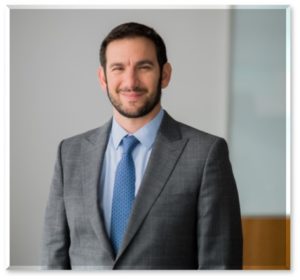 Frank Brodie, MD, MBADr. Brodie joins the Department of Ophthalmology as a vitreoretinal disease specialist.
Frank Brodie, MD, MBADr. Brodie joins the Department of Ophthalmology as a vitreoretinal disease specialist.
Vitreoretinal Surgery and Innovation Fellowships: Duke University, Stanford UniversityResidency: UCSFMD/MBA: University of Pennsylvania
Why is your practice at the San Francisco VA Hospital so important to you?Our veterans have sacrificed and truly deserve the very best care. It’s incredible to hear their stories and experiences.
What inspired you to pursue ophthalmology?Family! I grew up hearing about the satisfactions of serving retinal patients from my uncle, Dr. Daniel Schwartz, and my grandfather, Dr. Ariah Schwartz – both practiced at UCSF!
What happened to the 3D-printed glasses you developed as a resident?In collaboration with Dr. de Alba Campomanes, we started Loving Eyes Foundation, a nonprofit to provide these glasses to any child who needs them. We already serve UCSF, Stanford, Kaiser Permanente, Boston Children’s, and Duke, among others, and we continue to seek new partners.
What are your overarching research goals?I want to develop novel ways to prevent and treat retinal detachment. I look forward to collaborating with scientists both within the University of California community and beyond.
Was innovation always part of your career plan?I’ve always enjoyed finding problems and collaborating to find solutions, so yes. My combined MD/MBA program and the innovation fellowship were great preparation.